Films
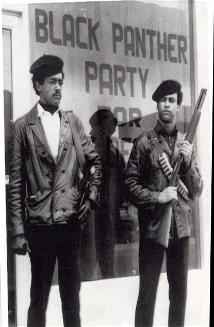
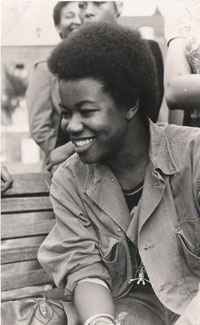
Above: Revolutionary hard-core sister and Brixton Black Panther, Olive Morris http://rememberolivemorris.wordpress.com
Sunday 26 April 1pm-4.30pm
Imperial War Museum, Lambeth Road SE1.Tube: Lambeth North.
Free entry: First come,first served www.iwm.org.uk
The bias in schools gives the impression that racism and civil rights was an American issue and totally ignores the struggles Black British people endured. For example :
* Oxford/Regent Street refused to employ black people Black and Asian kids were bussed out of local schools so that there would not be "too many" of them
* Racial attacks were a daily occurence and ignored by police
* Black people had to pay more for houses and more for mortgages
* There were documented calls for black schools in the 1700's
* In the 1790's a group of Africans in London were lobbying the government for abolition
* In 1820 a Jamaican in London bought guns in order to overthrow the government
Every area of life was contested at great cost. This presentation will give you the names and achievements of those who fought against British racism over the last 400 years. Please bring pen and pad.
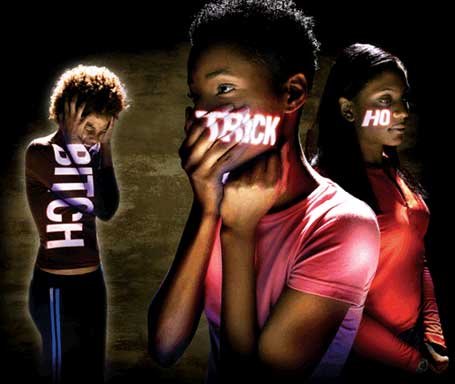
Friday 24th April 7.15pm-10.30pm
White Mens Wealth=Black Womens Poverty: The links betweeen Trade, Aid & Gender
Unit 9 Eurolink Business Centre, 49 Effra Road SW2 Tube: Brixton Adm: £5.00
Dr Lez and Blak Friday present Brother Tony sampling the work of Helen Wangusa, John Pilger, Walter Rodney, Hugo Chavez, Naomi Klein, Donna St Hill & Oliver Tambo looking at the impact of European financial policies on African women around the world.
Topics covered include:
How poverty is created and maintained
How the IMF/World Bank encourage prostitution
G8,G20, the arms trade and refugees
The link between the UN and civil wars
Comic Relief is a Joke
Latecomers may end up standing as this is a small venue
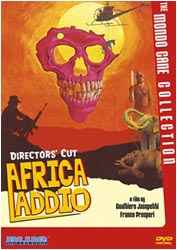
Saturday 25 April 2pm-5.00pm
BFI Southbank (near Royal Festival Hall) Belvedere Road SE1 Tube: Waterloo.
Tickets ₤5, best to book early. Phone 0207 928 3232 www.bfi.org.uk/southbank
Africa Addio (Italy 1966) Part of the Mondo Caine school. This is the film that preceded the banned and hated Goodbye Uncle Tom and was said to be so racist that the filmakers made Uncle Tom to prove they were not, in any way, racist. This shock-documentary alleges to show the turmoil following the fall of colonialism and how Africans coped without their benevolent European masters.
See for yourself if any of these styles of representation of black people which were deemed offensive then are still current in news reports or Hollywood films but accepted as 'normal' by viewers who have no knowledge of their history.

Above: Caribbean ex-servicemen returned to Britain after serving in WW2
Saturday 21 March 1pm-4.30pm
Imperial War Museum, Lambeth Road SE1 Tube: Lambeth North.
Free entry: First come,first served www.iwm.org.uk
1946 after black people had fought and died all over the world for Britain those still in England were told to go back where they had come from. On this day we will tell the untold stories of the post-war generation with films, audio clips and testimony from war veterans who were also veterans of the Civil Rights movement in Britain. As a black person in the post-war years you were:
* refused bank loans
* refused jobs
* restricted to live in bombed out areas
* blocked from buying homes
* harassed by police
* refused entry to churches
* refused service in pubs, hotels, restaurants
* forced to pay a higher mortgage than whites
* spat at on public transport
* attacked by the general public
* treated as if stupid in schools
War veterans such as Billy Strachan, Sam King and Connie Marks used their organising skills to fight such discrimination. We will focus on how such obstacles were overcome and if the lessons have been learned/remembered by the present generation
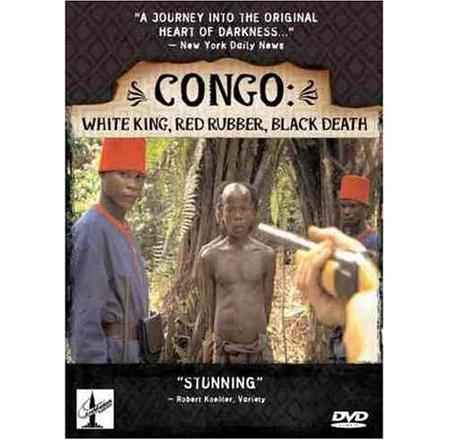
Saturday 21 March 2pm-4.30pm
BFI Southbank (near Royal Festival Hall) Belvedere Road SE1
Tube: Waterloo. Tickets ₤5 Phone 0207 928 3232 www.bfi.org.uk/southbank
King Leopold II of Belgium in the early 20th century turned the Congo into a vast rubber-harvesting labour camp in which he killed millions and amputated the hands of tens of thousands while claiming he was civilising the African. Although represented in the west as typical "african savagery" the chopping off of hands was promoted by white people as a means of terrorising Africans to collect rubber in order to make Europeans rich. This is why one of the world’s richest countries is home to such misery today. This award winning documentary sets the context for understanding the crisis in Kivu, the 5 milllion Congolese deaths in the last ten years and why Patrice Lumumba was assassinated by Western governments. The Congo was also crucial to the winning of World War 2. Followed by panel discussion
